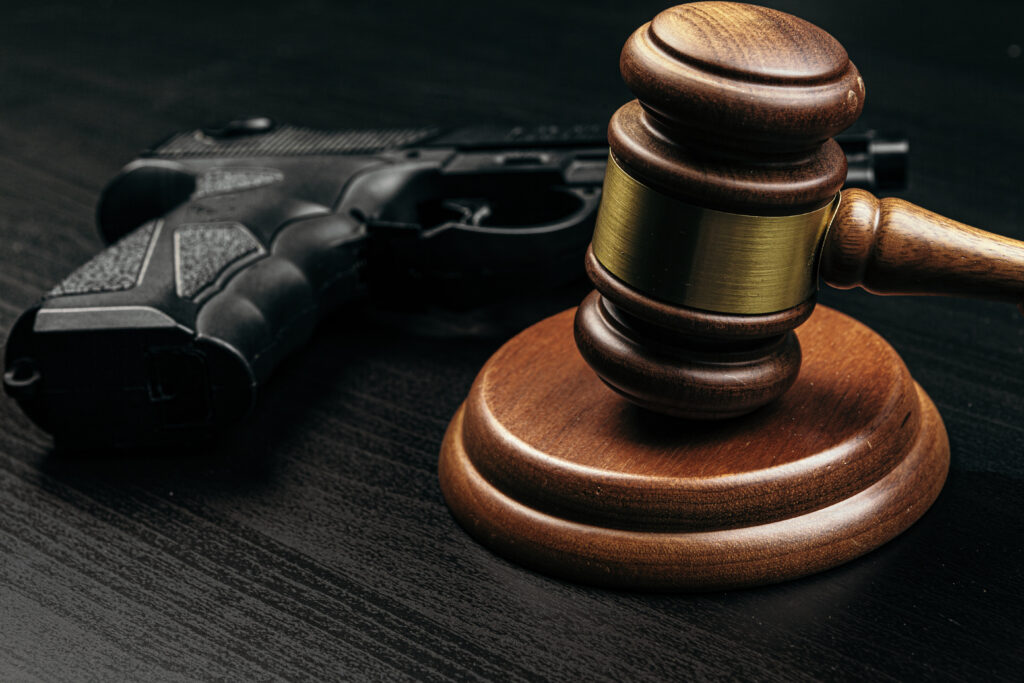
On July 23, 2023, House Bill 1562 went into effect, drastically changing the rules for restoration of firearm rights and significantly narrowing eligibility. The bill also expands the list of crimes that will result in a prohibition on firearm rights. This article will discuss both aspects of House Bill 1562, along with a strategy for avoiding the bill’s harmful impacts on the restoration of firearm rights.
House Bill 1562: Expanded Loss of Firearm Rights
RCW 9.41.040 controls the loss of firearm rights. Historically, the statute prohibits the possession of a firearm after a conviction for any felony or for the following domestic violence misdemeanors: assault 4, criminal trespass 1, coercion, stalking, reckless endangerment, violation of a protection order (if the crime is committed on or after 7/1/1993); and harassment (if the crime is committed on or after 6/18/2018).
With House Bill 1562, the following misdemeanors are added to the list of crimes that will prohibit the possession of a firearm, if the crime is committed on or after 7/23/2023:
- All domestic violence misdemeanors
- Stalking
- Cyber stalking
- Cyber harassment
- Harassment
- Aiming or discharging a firearm
- Unlawful carry or display of a firearm
- Animal cruelty 2
- Any “prior offense” if committed within seven years of a conviction for any other “prior offense”
- A “prior offense” is any DUI or DUI related offense, such as reckless driving or negligent driving in the first degree amended down from DUI. This means that the second-in-seven prior offense becomes a firearm prohibitor.
- Violation of an order to surrender weapons or an extreme risk protection order.
New Rules for Restoration of Firearm Rights
HB 1562 creates new eligibility requirements for the restoration of firearm rights. Most importantly, it adds new requirements that the petitioner prove compliance with all sentence conditions and that the petitioner pay all restitution balances. These requirements did not previously exist. HB 1562 also makes changes regarding the waiting period required to restore firearm rights, and where the firearm rights restoration paperwork may be filed. Below is a chart summarizing the changes between old law and new law.
| Current RCW 9.41.040(4) | House Bill 1562 | |
| Base waiting period (felony) | Five years out of confinement | Same |
| Base waiting period (misd) | Three years out of confinement | Five years out of confinement |
| Venue | Superior court that entered prohibiting conviction OR superior court in county of residence | Superior court in county where prohibiting conviction occurred ONLY |
| Crime-free period | Any consecutive five-year period without any type of conviction (State v. Dennis) | The five crime-free years must be immediately preceding the petition BUT nonprohibiting convictions do not count |
| Completion of sentence (felony) | Not required | Required except nonrestitution LFOs and court shall waive proof requirement if petitioner provides verification from sentencing court that relevant court records are no longer available or attests to the unavailability of relevant records from other entities |
| Completion of sentence (misd) | Required | Required as above ^ |
Avoiding the New Rules
If you were eligible to restore your firearm rights under RCW 9.41.040(4) before the effective date of HB 1562 (July 23, 2023), then you have a vested right to proceed under former RCW 9.41.040(4) even after July 23, 2023. This is significantly beneficial because the eligibility rules are easier under former RCW 9.41.040(4). That means you’re more likely to be eligible for restoration under RCW 9.41.040(4) than you would be under HB 1562. Properly analyzing your ability to avoid the application of HB 1562 is crucial to determining your eligibility for restoration of firearm rights. This is a complex process and requires consultation from Washington state’s top gun rights lawyer.
The Only Way Forward is with Washington’s Top Gun Rights Lawyer
Because of the added complexity required to decide whether eligibility exists under RCW 9.41.040(4) or HB 1562, the only way to ensure success in having your firearm rights restored is to consult with Washington state’s top gun rights lawyers – Kertchen Law. Fill out the contact form on this page to start the process.



